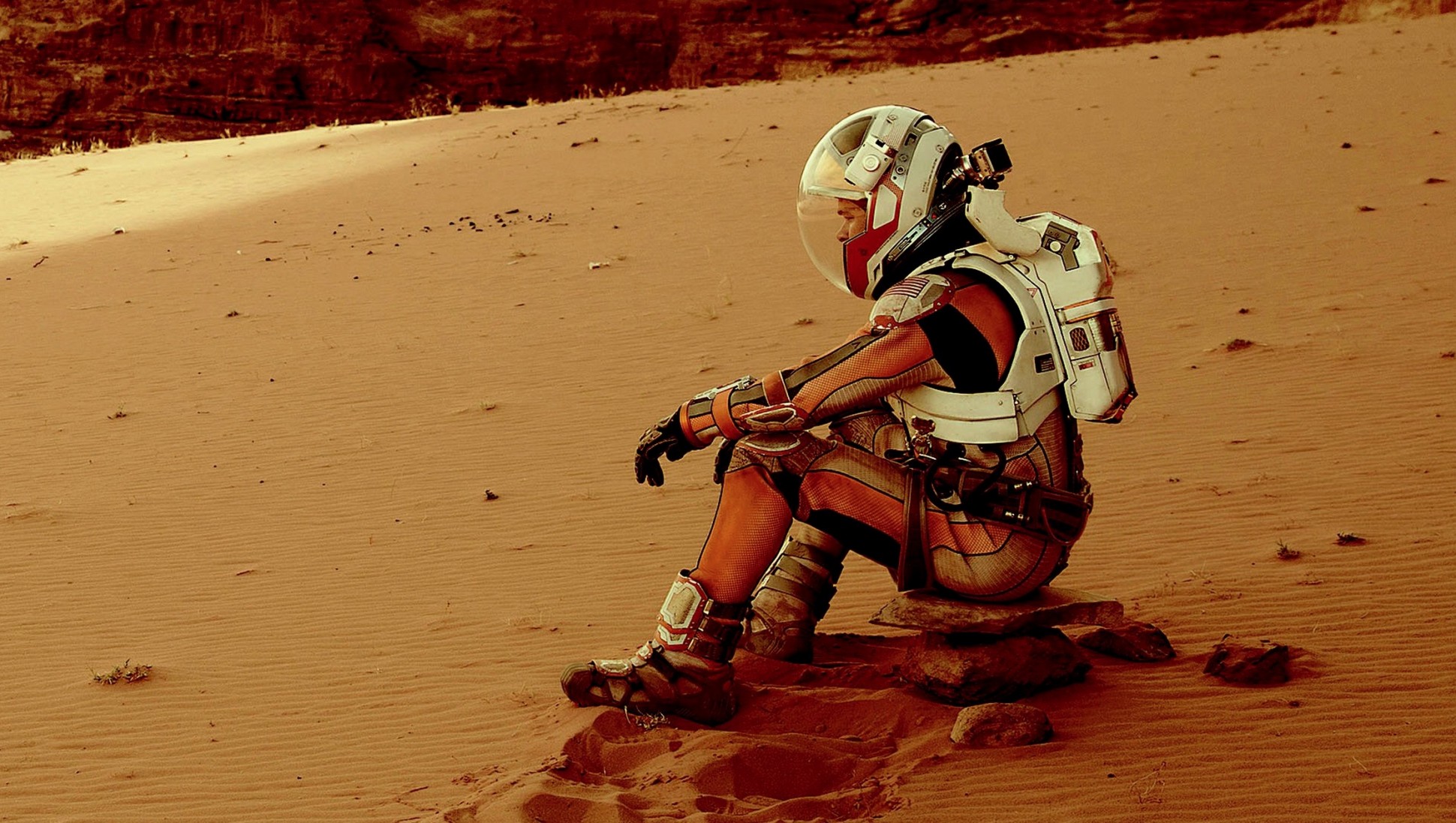
What are the bioethics of Mars exploration?
Ridley Scott’s latest film raises some interesting questions.
Ridley Scott’s latest film, The Martian, opens this month. Matt Damon plays an astronaut who is left for dead on Mars after a catastrophic accident. His challenge is to survive long enough for a rescue mission to return to the Red Planet. He has to make water and air and grow plants – alone and hundreds of millions of kilometres from home. It’s 93% fresh according to Rotten Tomatoes. “A muscular storytelling masterclass, a giddy audience-pleasing thrill-ride and certainly the most purely entertaining sci-fi movie since 2013’s awards-magnet Gravity,” according to the critic for the The Times (London).
It also provoked ethicist Janet D. Stemwedel to discuss in Forbes the bioethics (in a more capacious sense) of space colonisation.
- The assumption of most science fiction is that space exploration is not simply a good idea but an imperative, and not just to save mankind, but because the urge to explore and acquire new knowledge is irrepressible.
- Steady on, says Dr Stemwedel. There are a number of issues to be resolved. They need not stop us from going to Mars, but we must at least respond to them.
- We might harm indigenous life forms on Mars. True, it’s unlikely that these exist in a form that we would recognise. But what if they existed in a form that we don’t recognise? “What is the moral status of life forms different enough from the ones we have on Earth that we might fail to recognize them as ‘life’ in the first place? In the interests of extreme galactic biodiversity, would there be on obligation not to harm anything that might be alive…?”
- What are the benefits and costs of space exploration for Earthlings? “The ethical issue here is not just the magnitude of the costs of a colonization mission relative to the benefits of establishing a Mars colony. It’s also a matter of how those costs and benefits are distributed — of whether the people who bear the costs will also enjoy the benefits.”
- Even if Mars is lifeless, should we preserve its pristine environment or can we put billboards on it to finance future expeditions? “Does a lifeless landscape have intrinsic value that places ethical obligations on us? ”
- Does the notion of terra nullius apply to a distant and airless planet? Are we free to plunder its resources?
The Martian is science fiction at its best. But a private project, Mars One, already exists which purports to establish a colony on Mars by the year 2027 – only a decade away. For the volunteers it will be a one-way trip, so they need to have thought through all the bioethical issues.
https://www.bioedge.org/images/2008images/TH_THE-MARTIAN.jpg
Creative commons
https://www.bioedge.org/images/2008images/THE-MARTIAN-3-1940×1097.jpg
space exploration
- How long can you put off seeing the doctor because of lockdowns? - December 3, 2021
- House of Lords debates assisted suicide—again - October 28, 2021
- Spanish government tries to restrict conscientious objection - October 28, 2021
